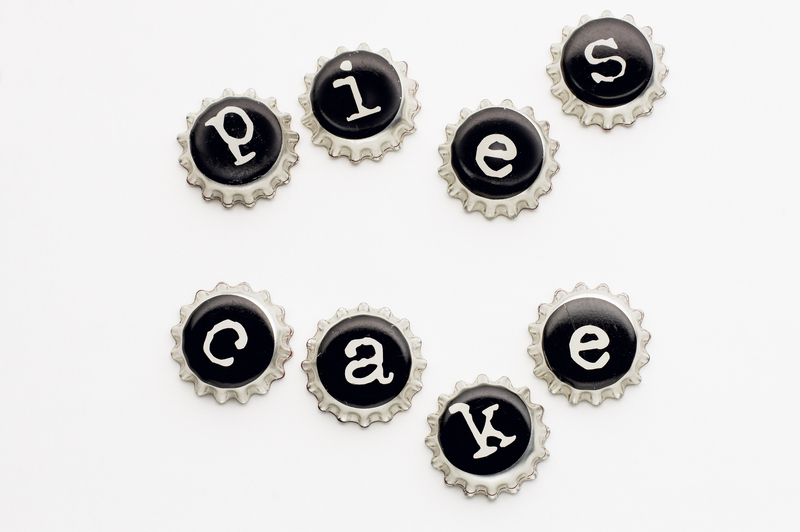Resourceful Ways to Manage Household Waste: A Comprehensive Guide
Managing household waste efficiently is more than just a way to keep your home clean--it's an essential part of caring for our environment. With increasing concerns about landfill overcrowding, pollution, and natural resource depletion, it's crucial for every homeowner to learn resourceful ways to manage household waste.
In this article, you'll discover creative, actionable strategies and expert tips for reducing, reusing, and recycling at home. Not only will these methods help you minimize your ecological impact, but they can also save you money and create a healthier living space for your family.

Why Proper Household Waste Management Matters
- Reduces Environmental Pollution: Properly managed waste minimizes greenhouse gas emissions and land pollution.
- Conserves Resources: Recycling and reusing conserve raw materials and reduces the need for new products.
- Supports Community Well-being: Cleaner neighborhoods promote health, safety, and overall well-being.
- Saves Money: Efficient waste management reduces disposal costs and can even create new resources for your household.
Understanding Different Types of Household Waste
Before diving into resourceful household waste management, it's helpful to recognize the categories of waste produced in homes:
- Organic Waste: Food scraps, yard clippings, and anything biodegradable.
- Recyclable Waste: Paper, glass, plastics, metals, and certain electronics.
- Hazardous Waste: Batteries, chemicals, paints, bulbs, and pharmaceuticals.
- Non-Recyclable Waste: Certain plastics, broken ceramics, and some packaging materials.
Knowing what type of waste you generate makes it easier to handle each item in the most effective and sustainable way.
Strategies for Reducing Household Waste at the Source
Practice Conscious Purchasing
One of the best ways to manage household waste is by reducing it before it enters your home:
- Buy in Bulk: Purchasing larger quantities minimizes packaging waste.
- Choose Products with Minimal Packaging: Select items with recyclable or compostable packaging.
- Plan Meals: Meal planning helps avoid buying excess food that might go to waste.
- Use Reusable Shopping Bags: Drastically cut down on plastic bag consumption.
Implement a Zero Waste Lifestyle
Embracing a zero waste philosophy focuses on sending as little trash to landfills as possible. Some simple steps include:
- Switch to Reusable Containers: Use glass jars or stainless steel containers for storage.
- Adopt Cloth Napkins and Towels: Replace disposable paper products with washable alternatives.
- Avoid Single-Use Plastics: Opt for items like metal straws, beeswax wraps, and refillable water bottles.
- Refill and Reuse: Support stores that offer refill stations for pantry items, cleaning products, and toiletries.
Creative Recycling and Repurposing at Home
Sorting and Recycling Household Waste
Sorting your waste correctly ensures recyclable materials are properly processed. Here's how to streamline your home recycling:
- Set Up Clear Bins: Label containers for paper, plastic, glass, and metals to make sorting simple.
- Clean Before Recycling: Rinse food containers and remove non-recyclable parts to avoid contamination.
- Know What's Accepted: Check local recycling rules--every municipality is different.
Composting: Turn Organic Waste into Garden Gold
Composting is an eco-friendly way to manage kitchen and garden waste by creating nutrients for your soil:
- Start a Backyard Compost: Collect food scraps, coffee grounds, and yard clippings in a compost bin.
- Vermicomposting: Use worms to break down kitchen scraps, ideal for smaller spaces.
- Community Composting: Some cities run communal compost drop-offs or pickup programs.
Compost not only diverts waste from landfills--it also enriches your garden, reduces the need for chemical fertilizers, and lowers your carbon footprint.
Repurposing and Upcycling Household Items
Thinking creatively about household waste means finding new purposes for old items:
- Glass Jars and Bottles: Turn empty jars into storage solutions, vases, or drinking glasses.
- Old Clothes and Linens: Cut up worn fabrics for cleaning rags, pet bedding, or craft projects.
- Furniture Upcycling: Refresh tired furniture with a coat of paint or new hardware, extending its lifespan.
- DIY Projects: Pallets, cans, and cardboard can be used for everything from planters to children's art projects.
Managing Special and Hazardous Household Waste
Some waste requires extra care due to its ability to harm humans, pets, or the environment. Resourceful household waste management means handling these items responsibly:
Safe Disposal of Batteries and Electronics
- Never throw batteries, phones, or small electronics in the trash.
- Use designated e-waste collection centers or recycling events offered by your city.
- Retailers like Best Buy, Staples, or local hardware stores often accept these items for recycling.
Handling Chemicals, Paints, and Medications
- Take unused paints, solvents, and cleaning products to hazardous waste collection facilities.
- Never pour chemicals down drains, as this can contaminate water systems.
- Return old medications to pharmacies that offer take-back programs.
Waste Reduction Tips for Every Room
Every room in your home presents opportunities for better waste management. Here's how you can optimize each area:
Kitchen
- Compost fruit and vegetable scraps.
- Choose bulk and unpackaged groceries.
- Repurpose jars, bottles, and containers.
- Use beeswax wraps in place of plastic wrap.
Bathroom
- Opt for bar soap over bottled soap to cut packaging.
- Switch to reusable cotton pads or washable towels.
- Buy toiletries in bulk or from refillable sources.
- Recycle empty bottles and cardboard tubes.
Living Room
- Repair or donate electronics and furniture, instead of discarding.
- Reduce paper waste by going digital with magazines and books.
- Host clothing or book swaps with friends and neighbors.
Laundry Room
- Make your own cleaning products in reusable containers.
- Avoid fabric softener sheets--try wool dryer balls.
- Upcycle old clothes as dusters or rags.
Involving the Whole Family: Making Waste Management Fun
Teaching children about resourceful ways to manage household waste ensures positive habits for generations to come. Ways to get the whole family involved include:
- Waste Sorting Games: Use labeled bins and let kids practice which item goes where.
- Creative Upcycling Projects: Turn trash into art together--paint jars, make sculptures from cardboard, or create bird feeders from bottles.
- Gardening Together: Start a compost pile or a small herb garden using kitchen scraps.
- Reward Systems: Offer incentives for kids and teens who consistently recycle, compost, or reduce waste.
Leveraging Technology for Efficient Household Waste Management
Modern solutions make it even easier to be resourceful with household waste:
- Waste Collection Apps: Many municipalities use apps to notify residents about pick-up days and special recycling events.
- Food Waste Trackers: Mobile apps track expiration dates and help you create meal plans that reduce waste.
- Smart Composters: Countertop compost bins with odor control make it easier to compost indoors.
- Eco-friendly Product Locators: Find bulk stores, refill stations, and recycling points using online directories.
Community Involvement and Advocacy
Taking household waste management beyond your four walls amplifies your impact. Consider these steps:
- Organize Community Clean-Ups: Join or host events to clear litter from parks, streets, and public spaces.
- Share or Donate: Give gently used goods to shelters, charities, or online sharing groups instead of tossing them out.
- Advocate for Better Facilities: Work with local government for improved recycling programs or compost initiatives.
- Educate Others: Host workshops, start a neighborhood newsletter, or share tips on social media to inspire others in resourceful household waste management.

Frequently Asked Questions About Household Waste Management
-
What is the most effective way to reduce household waste?
Source reduction--buying less, choosing reusable items, and composting--has the biggest impact. -
How can I start composting if I don't have a yard?
Consider vermicomposting (using worms) or a countertop compost bin suitable for apartments. -
What should I do with hazardous waste at home?
Store it safely and take it to a local hazardous waste facility or a special collection event. -
Can all plastics be recycled?
No--always check symbols and local rules, as some plastics are not accepted by municipal recycling programs.
Final Thoughts: Making Resourceful Waste Management a Habit
Adopting resourceful ways to manage household waste is an ongoing process, but every small effort contributes to a cleaner environment, stronger community, and healthier home. Remember, it's not about perfection, but progress. Start with one or two changes, involve your family, and be proud of every positive step you make. With a little creativity and commitment, anyone can become a champion of resourceful household waste management.
What will you do today to manage your household waste resourcefully?